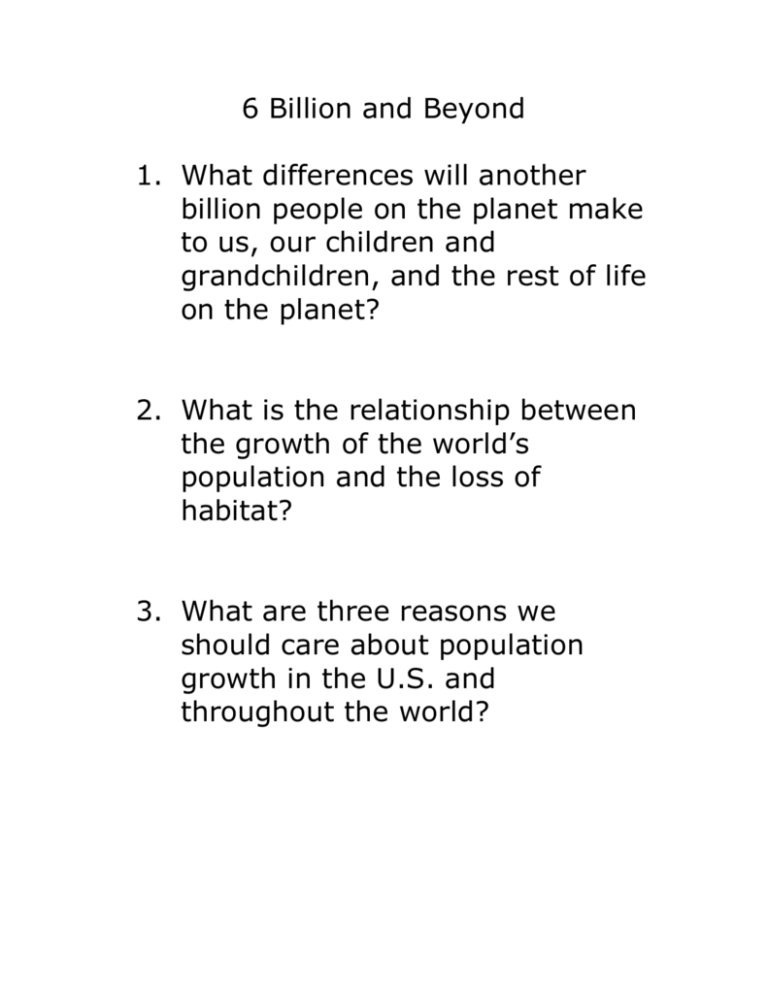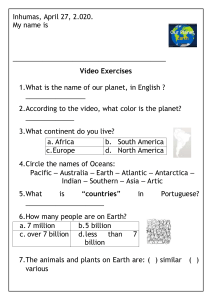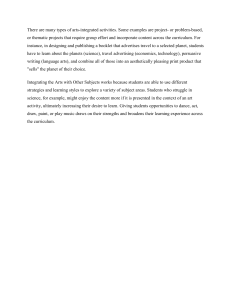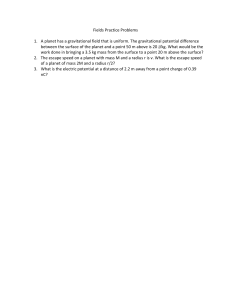6 Billion and Beyond
advertisement

6 Billion and Beyond 1. What differences will another billion people on the planet make to us, our children and grandchildren, and the rest of life on the planet? 2. What is the relationship between the growth of the world’s population and the loss of habitat? 3. What are three reasons we should care about population growth in the U.S. and throughout the world? After viewing 6 Billion & Beyond reflect on what you observed, heard and know about population growth and control. Select 5 questions from below and write your thoughts/comments. Support with any factual information you may have. What is the main message you took away from each country on the video? What are the similarities and differences among these nations? What lessons, if any, can the young people in the video teach each other? Describe how education, availability of job opportunities and the spacing of children can have an impact on population growth? What have been some of the traditional obstacles to women having access to education and job opportunities in the countries seen in the video? Why is it important for women to be educated and have access to job opportunities? What can be done to encourage nations to provide education and job opportunities for women? What are the consequences of population growth in developing countries? How are the challenges similar and different to growth in developed countries (U.S.)? Which challenges are the greatest? Describe the dilemma of having too many people to sustain the planet vs. the rights of the individual to have as large a family as they choose. Why has the population increased so dramatically since 1950? In what ways is this both a positive and negative situation? Describe the generational conflicts young people throughout the world are having when deciding the number of children to have? How is the conflict seen in the nations shown in the video? What are some ways young people are responding to the older generation who want them to have more children? In what ways does rapid urban population growth create special challenges in major cities? What are the problems inherent in nations such as Italy, Spain and France whose populations are declining? Should the responsibility for family planning belong to women and men equally? Explain. The issues of gender equality are not restricted to developing nations, they are also found in the U.S. How do gender equity issues and differences between men’s and women’s role in the U.S. compare to the nations seen in the documentary.











